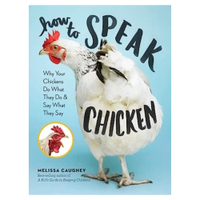Why Mrs Hinch's wholesome new hobby has taken social media by storm
Keen to embrace the farmcore trend? Make like Mrs Hinch and try your hand at this unusual hobby


Sophie Hinchliffe – aka our beloved Mrs Hinch – has long been a source of inspiration for many of us. So, yes, you better believe we sat up and paid attention when we learned that the cleaning influencer has been embracing all things farmcore.
Much like cottagecore, its a trend that leans into the wide, open spaces of the countryside, taking its inspiration from (you guessed it) farming culture.
All of this means that farmcore has led to plenty of new and exciting garden ideas and garden trends around edimentals, rain harvesting, and (if you're Mrs Hinch) learning how to raise chickens in your backyard, too.
How to raise chickens like Mrs Hinch
Mrs Hinch adopted Peggy, Pam, Pat and Pringle from the British Hen Welfare Trust, and has been busily sharing updates with her followers via Instagram.
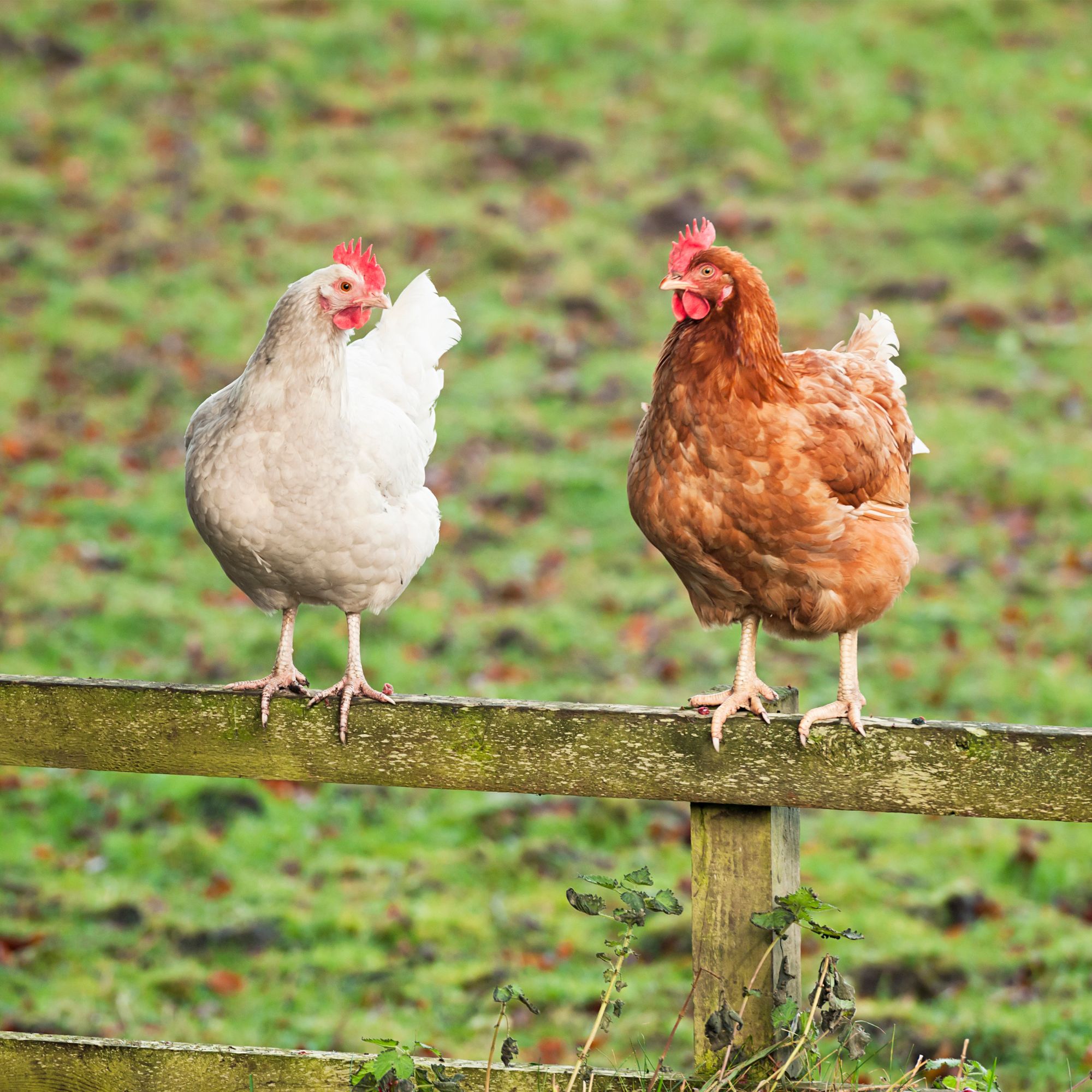
'Watching so many helpless hens being rehomed so they can be free from a cage for the rest of their life was so special to see,' Mrs Hinch wrote about the experience, noting that her hens had been rescued from a caged commercial unit.
'They may look a little worse for wear, but with sunshine, fresh air and TLC, their feathers will soon start to regrow.'
The cleaning influencer has been inundated with messages from fans about her wholesome hobby, with plenty flocking (sorry not sorry) to ask questions about the reality of raising chickens at home.
Get the Ideal Home Newsletter
Sign up to our newsletter for style and decor inspiration, house makeovers, project advice and more.
With that in mind, then, here's everything you need to know about embracing this farmcore trend responsibly.
What you will need to raise chickens
While chickens do, of course, require a few key pieces of equipment, the main thing you will need is a well-secured garden – as well as love and patience.
How to Speak Chicken: Why Your Chickens Do What They Do & Say What They Say by Melissa Caughey | £9.55 on Amazon
Fancy learning more about your new pets? This delightfully fun and interesting book will teach you everything you need to know about chicken, right down to whether or not they have names for each other
'When it comes to keeping chickens, there’s really not much you’ll need,' promises Francesca Mapp, spokesperson for the British Hen Welfare Trust.
'First things first, a cosy coop for them to cuddle up in at night is essential, as is fresh food and water on a daily basis. And they’ll need an area to dust bathe in, such as a cat litter tray filled with dry soil and/or sand.'
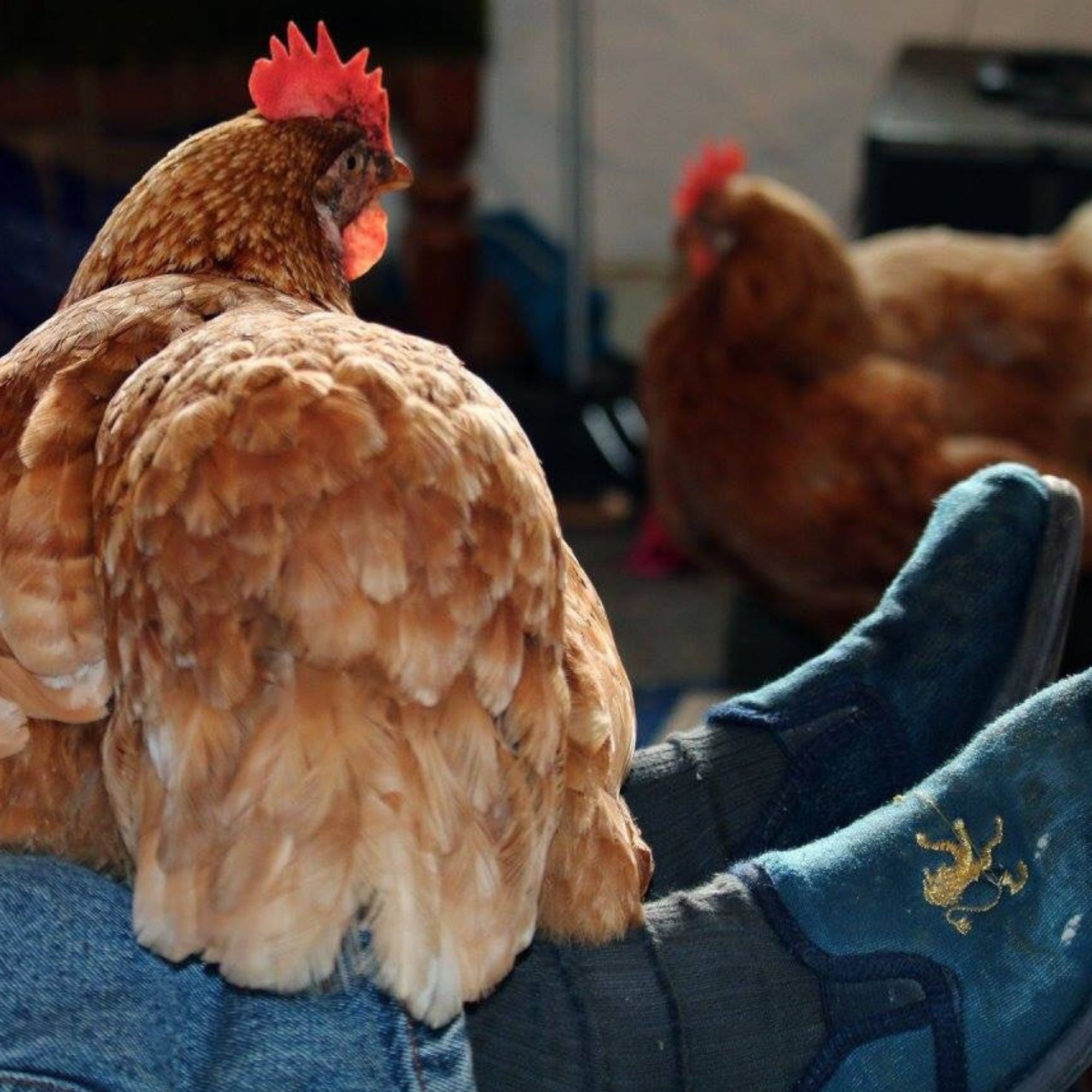
We reached out to Chicken Rescue UK for their list of must-haves, and they revealed the following are all essentials when it comes to raising chickens at home:
1. A flock of at least 3 chickens
No-one wants a lone hen, so you will need to be prepared to take on at least three chickens.
Kate Norman, poultry expert at the RSPCA, said: 'For people who would like to keep hens, we would ask them to always consider rehoming rescue hens, and avoid hatching them themselves from eggs, as you can’t be sure of the sex and may find yourself with cockerels instead.
'Although cockerels can get a bad reputation for being noisy and sometimes aggressive, with the right care and knowledge, they can also make great pets and are absolutely fascinating to watch and care for.'
2. A coop
Wooden coops will take more upkeep and are more difficult to clean, but they are generally cheaper than plastic ones – and they tend to look more beautiful, too.
Make sure that the entrance is big enough for chickens to move through without crouching, and that there is enough space for all of the birds to comfortably roost at the same time (from 15cm per chicken).
'Chickens need a warm, dry and well-ventilated chicken house which should have enough space for the chickens to exercise, a litter covered flooring, plenty of perches, and nest boxes,' says Kate.
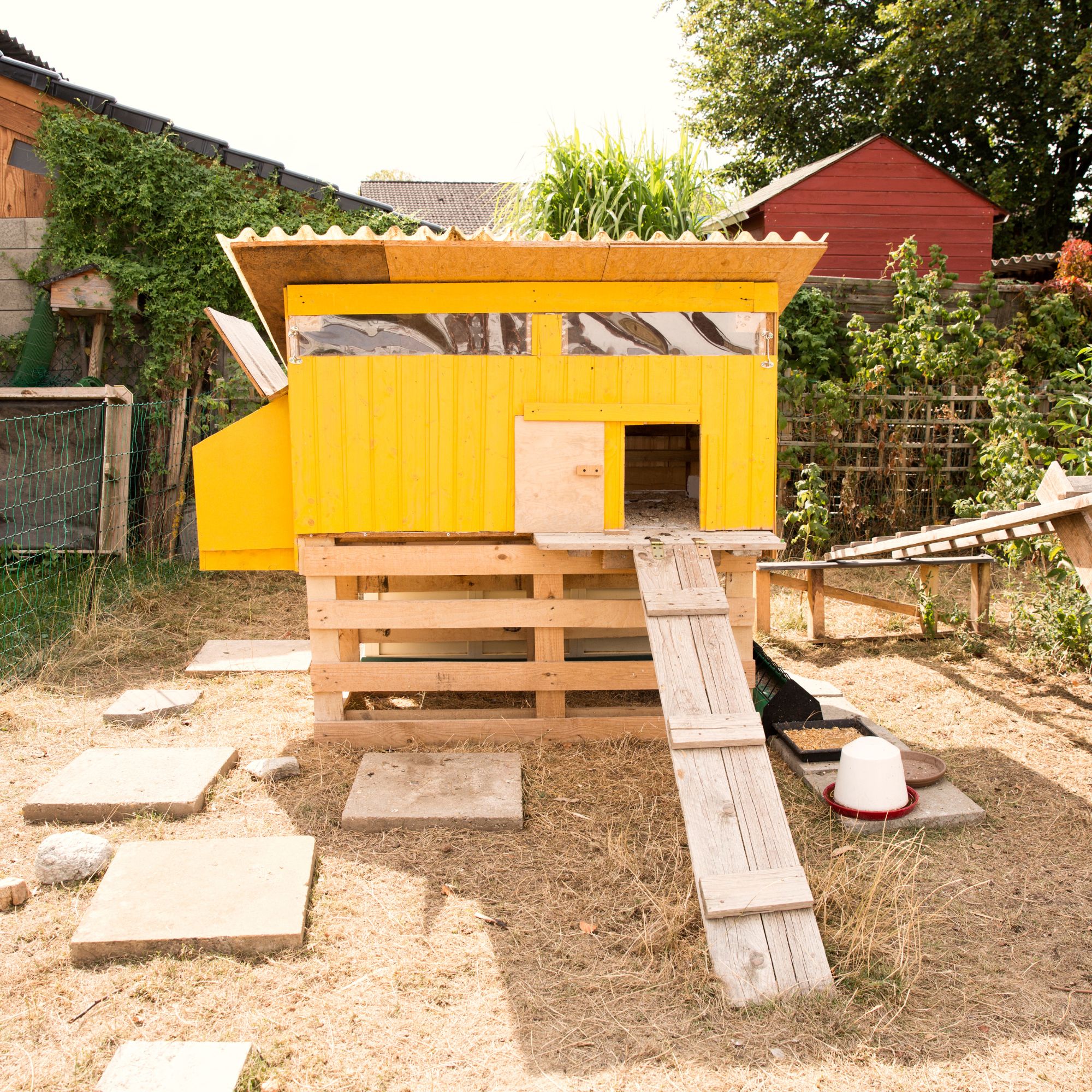
You will need to cover the floor with wood shavings or straw, to allow for foraging and dust bathing. Just be sure to top this up or replace it regularly, so your hens are kept happy!
Remember: if you are dreaming of freshly laid eggs, you will also need to supply quiet, enclosed nest boxes filled with straw.
3. A run or free-ranging space
Your chickens will want to run around and feel the sun on their feathers, so make sure you have a nice outdoor space for them.
This will need to include short grass (long grass can wreak havoc with a hen's digestive system), dry soil for dust bathing and foraging, shelter from the elements in the form of small trees or purpose-built shelters, and well-maintained fences to keep them safe from predators.
Remember, it's always better to overestimate space requirements than underestimate.
4. Food and drink
Keep your chickens well-fed and watered by ensuring you have the following to hand:
- A supply of layers pellets/layers mash for feeding purposes
- A feeding bowl or treadle feeder
- A chicken drinker
- A selection of peck toys filled with vegetable or sunflower seeds
- A few treats in the form of fruit and green vegetables
- A metal bin (or something similar) to store chicken feed inside
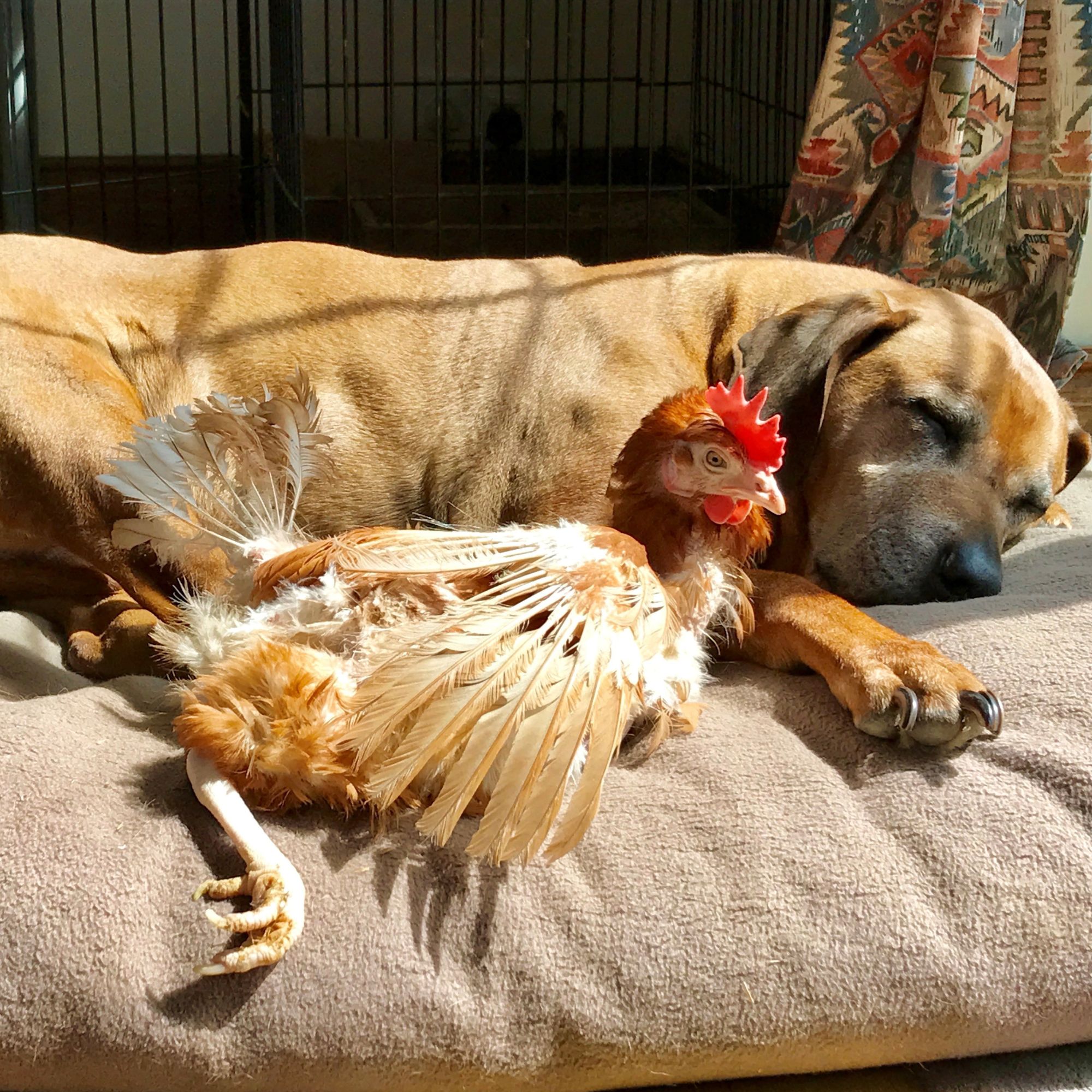
Mrs Hinch also feeds her beloved hens a mixture of scrambled eggs and spinach.
'Scrambled eggs is one of the healthiest treats you can feed your chicken,' she writes in one Instagram Stories post.
So, if your chickens lay excess eggs, you know what to do...
5. A first-aid kit
It is worth setting up a first aid kit for your hens, filled with purple spray, vitamin supplements, wormer impregnated food (flubenvet), a small syringe, and a bag of Epsom salts, and coop spray.
Make sure you have the number of a good local vet to hand, too.
A post shared by Sophie Hinchliffe (@mrshinchhome)
A photo posted by on
Basically, with a little hard work and a lot of love, you, too, can make like Mrs Hinch and make all of your farmcore dreams come true.
Just be sure to do your research on how to raise chickens before you rush off to adopt a trio of hens, OK?
Can I adopt a rescue hen?
'There are so many reasons why adopting hens is a better option than breeding or buying pullets, not least because, if you rehome from a charity such as the British Hen Welfare Trust, you’ll be saving their lives,' says Francesca.
'Once they reach 18 months old, commercial laying hens are sent to slaughter and replaced with younger birds capable of laying more eggs. However, they have so much more life to give and will often reach their fourth birthday and beyond.'
Remember: commercial hens are bred for docility, which means 'they’ll be extra friendly and you’ll likely be able to pick them up and give them a cuddle, as you would a dog or cat,' says Francesca.
'Better still, these pets will reward you with fresh eggs in return for their free-range freedom if given the right care and attention.'
How many chickens should a beginner start with?
The RSPCA recommends keeping at least three hens that get on well together, as they are extremely flock-oriented birds. You are likely to collect about a dozen eggs from a flock of this size, which should be more than enough to keep you going.
Are chickens easy to raise?
Chickens are fairly low-maintenance pets, especially compared to other animals. Yes, they require food, water, and regular coop cleans – and, yes, they need a secure outdoor space to stretch their wings. They also need to be safely roosted at night, and let out early in the morning, so they are a time commitment.
'Other than that, though, hens really do look after themselves,' promises Francesca.
'There’s nothing quite like enjoying a morning cup of tea with the sound of gentle chicken chatter around your feet – I couldn’t recommend adopting hens highly enough.'
Should I keep chickens?
There is no one-size-fits-all answer to this question. After all, chickens 'can be rewarding to keep but it’s important that any prospective owner does their research first to make sure they’re the right pet for you,' says Kate.
'Each chicken has their own individual personality and can be friendly and quite tame, so it’s really worth putting in time and patience to build a good relationship and really enjoy them as pets.
'Before deciding to keep chickens of any kind it’s important to consider whether you have the knowledge, time, facilities, money and commitment needed to care for them.'

Kayleigh Dray became Ideal Home’s Acting Content Editor in the spring of 2023, and is very excited to get to work. She joins the team after a decade-long career working as a journalist and editor across a number of leading lifestyle brands, both in-house and as a freelancer.
-
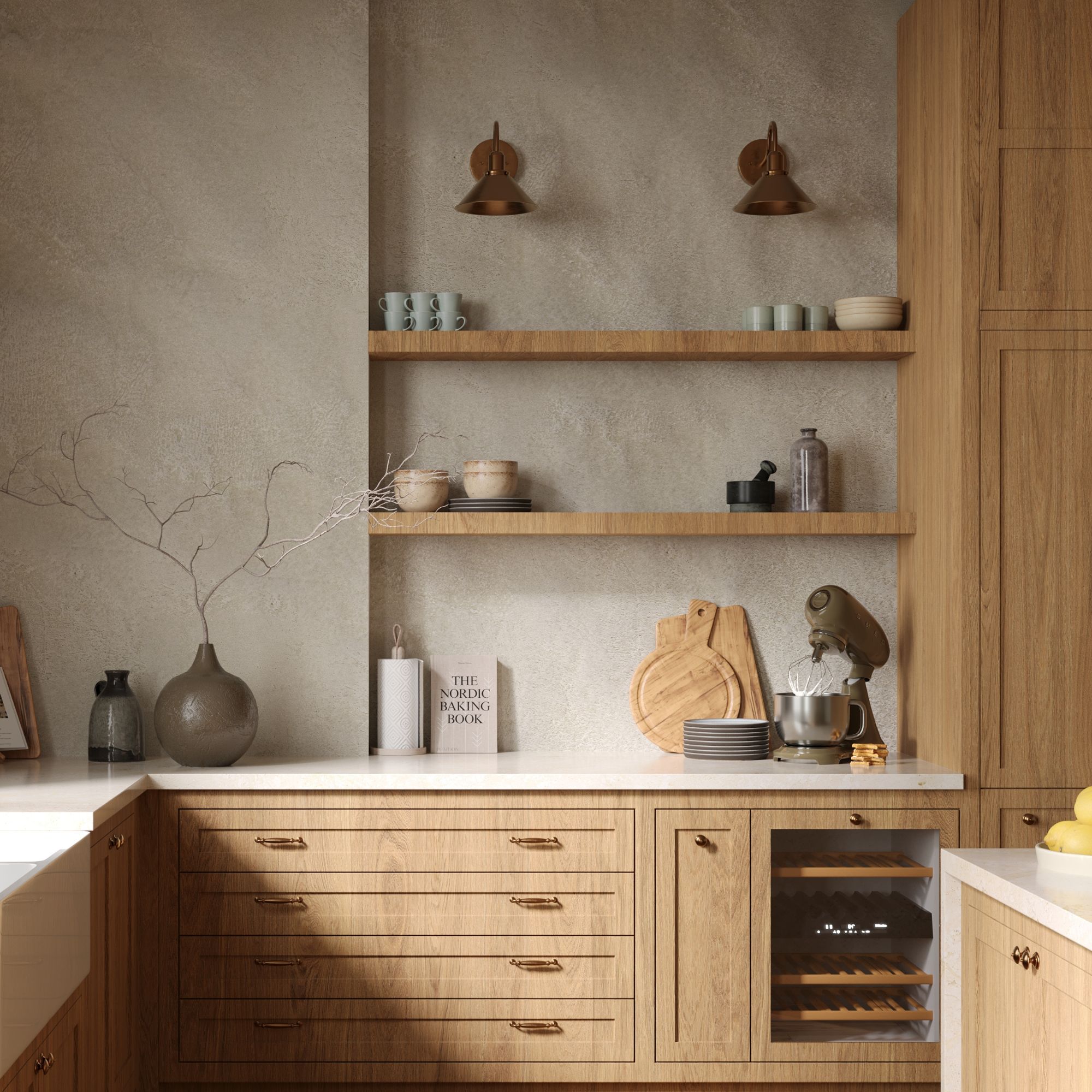 Wood drenching is the calming new twist on the colour drenching trend – here’s how to make the look work in your home
Wood drenching is the calming new twist on the colour drenching trend – here’s how to make the look work in your homeIt’s easier than ever to embrace natural materials
By Maddie Balcombe
-
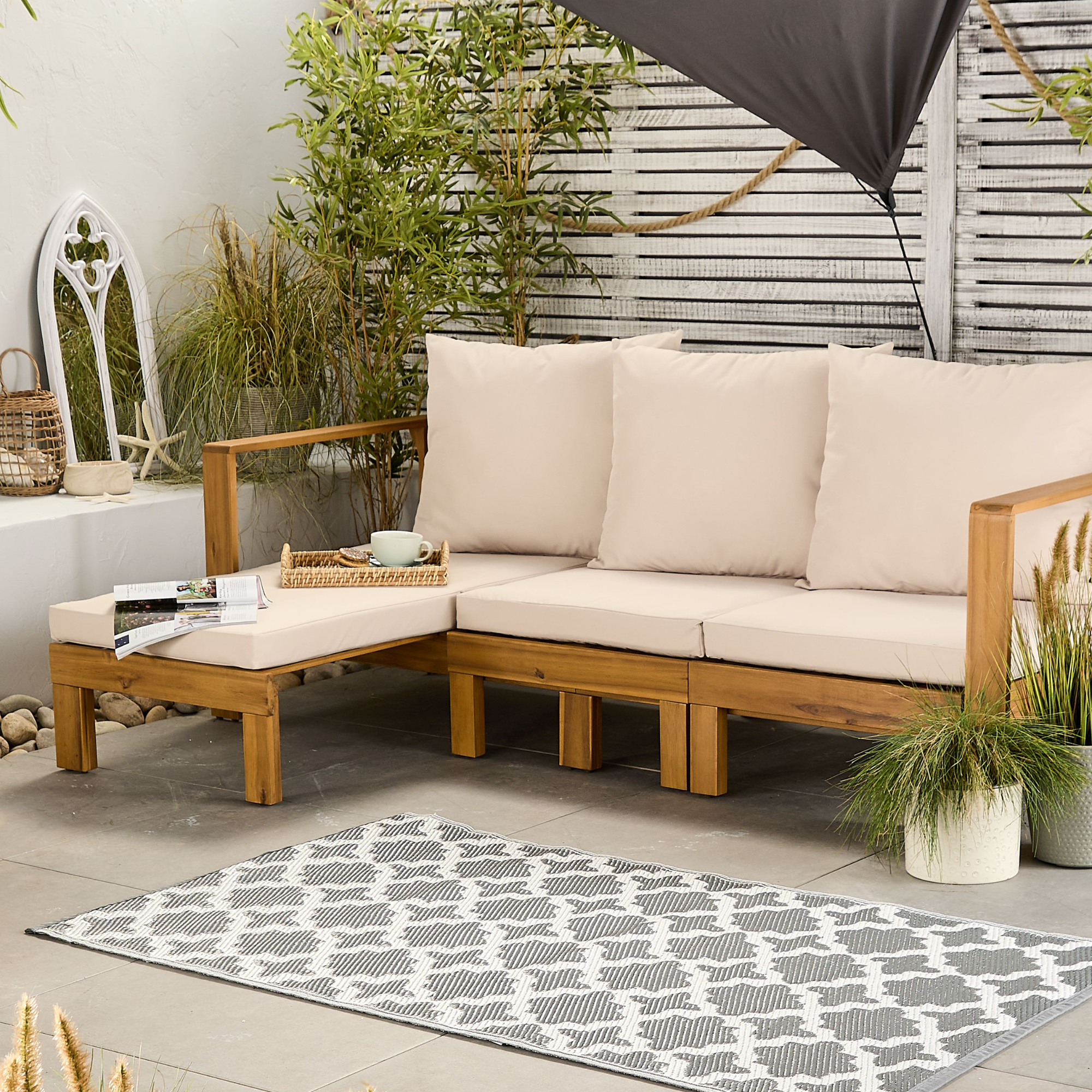 Aldi is launching a £200 day bed with four different features - its sleek design is suited to the whole family
Aldi is launching a £200 day bed with four different features - its sleek design is suited to the whole familyYou don't want to miss out on this Specialbuy
By Kezia Reynolds
-
 How to set up a drip watering system that saves water and a lot of effort
How to set up a drip watering system that saves water and a lot of effortKeep your plants hydrated (and your water bill down) with this clever garden watering solution
By Natalie Osborn
